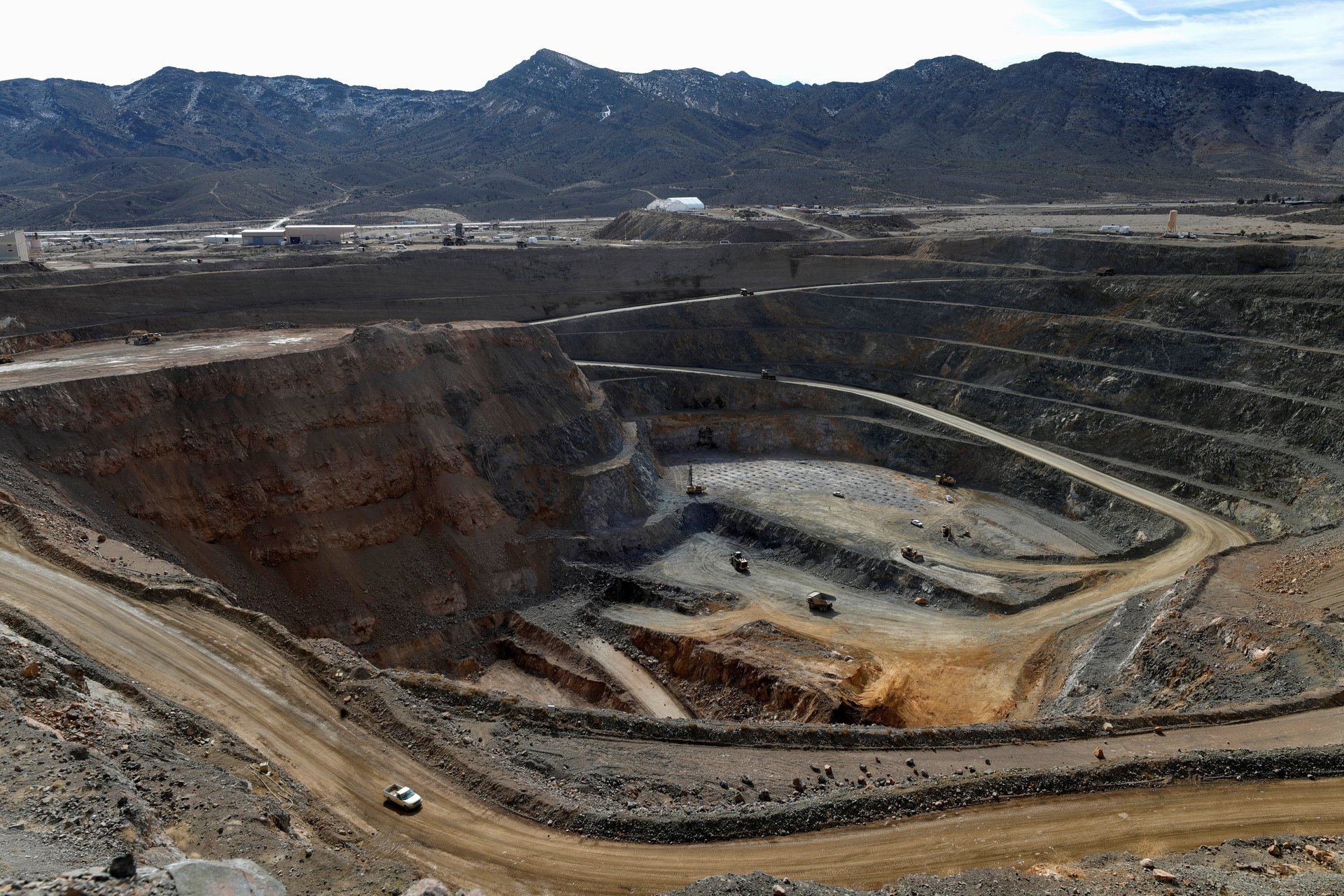The US is taking steps towards breaking China’s rare earths monopoly
Another rare earths company may soon be going public in the US, presenting new opportunities for private investment in the domestic critical metals industry—a sector that Washington has signaled strong interest in reviving.


Another rare earths company may soon be going public in the US, presenting new opportunities for private investment in the domestic critical metals industry—a sector that Washington has signaled strong interest in reviving.
Rare earths, a group of 17 metals, are increasingly regarded as an urgent matter of national security given their crucial role in the manufacturing of high-tech products, from weapons to magnets for electric vehicles. While the US used to be a major global producer of the metals, China now dwarfs the US in rare earths production, and is the source of 80% of US rare earth imports (pdf).
USA Rare Earth, which is developing the Round Top rare earths mine in Texas, is exploring a New York listing this year that could value the company at over $1 billion. According to the company, the Round Top project has over a century’s worth of rare earth supplies. With only one mining firm currently producing rare earths in the US, Round Top—which the company hopes to have in operation by 2023—would play a significant role in helping diversify supplies.
🎧 For more intel on the global mining industry, listen to the Quartz Obsession podcast episode on rare earths. Or subscribe via: Apple Podcasts | Spotify | Google | Stitcher.
With China declaring rare earths a “strategic resource” and recently tightening regulations on the metals, the US faces heightened pressure to secure its supplies. Beijing has not ruled out cutting rare earth exports as a trade weapon. Meanwhile, demand for the metals is projected to increase, propelled by the growing electric vehicle market. Indeed, since 2018 China has been a net importer of rare earths, and is scrambling to even keep up with its own domestic needs—its exports last year dropped to a five-year low.
That’s all the more reason to ensure the US has diverse and reliable sources of rare earths, according to Pini Althaus, CEO of USA Rare Earth. “We’ve got to start doing something immediately to secure the supply chain,” he says. “This is not a trade war, this is simply supply and demand.”
There are also unexpected geopolitical developments that can trigger supply shocks. This week’s military coup in Myanmar, which accounts for roughly 10% of global rare earths production, temporarily sent shares of Chinese rare earth companies surging, driven by fears that instability and US sanctions could disrupt exports.
“A mosaic of actions”
No one company will singlehandedly revive the US’s rare earths industry, but a growing patchwork of firms and policy initiatives is helping the country reduce its reliance on China.
While MP Materials, which operates the only active rare earth mine on American soil and whose shares have more than doubled since listing last November, is technically a USA Rare Earth competitor, Althaus notes that “collaboration is the name of the game here.” For example, rare earths are categorized as “light” or “heavy” based on atomic weight, and MP Materials focuses more on the former while USA Rare Earth is more focused on the latter.
There are other encouraging signs. This week, the Pentagon awarded $30 million in funding to Lynas, an Australian miner and the largest rare earths mining and processing firm outside of China. Lynas will use the money to set up a light rare earths processing plant in Texas, and if successful, the project is expected to produce a quarter of the world’s supply of rare earth oxides. Already, Lynas CEO Amanda Lacaze has said the Biden administration’s support for green technology is a “very good thing” for the firm’s business, given the use of rare earths in electric car motors and wind turbines.
And though the US hopes to restore the entire rare earths supply chain to American soil, the global nature of the industry, and the world economy at large, will invariably mean that different countries’ rare earths industrial chains will still likely criss-cross borders.
For example, MP Materials is almost one-tenth owned by a Chinese company, Shenghe Resources, which essentially buys all of MP Materials’ rare earth concentrates for processing in China. While that arrangement helps the US because the country currently doesn’t have the capacity to do so, it also ends up helping China. In an interview last October (link in Chinese), the chairman of Shenghe Resources noted that a key factor in the firm’s success has been building partnerships with foreign companies.
Meanwhile, US president Joe Biden’s “Buy American” executive order—part of a raft of directives he has signed in the first days in office—explicitly mentions investing in clean energy and critical supply chains. That comes shortly after former president Donald Trump, in his last days in the White House, signed a $2.3 trillion spending package that included $800 million for rare earths programs, in a move that earned support from US miners. And there are currently several bills being considered that would provide tax incentives for the domestic production and purchase of rare earths.
Dan McGroarty, a member of the USA Rare Earth advisory board, said he hopes to see “a mosaic of actions” from the Biden administration with regards to rare earths, from allocating more federal funding to collaborating with other countries like Australia, Canada, and Japan to secure the global supply chain. “There’s going to be a significant degree of continuation and acceleration” from Trump to Biden on critical mineral policies, he said.